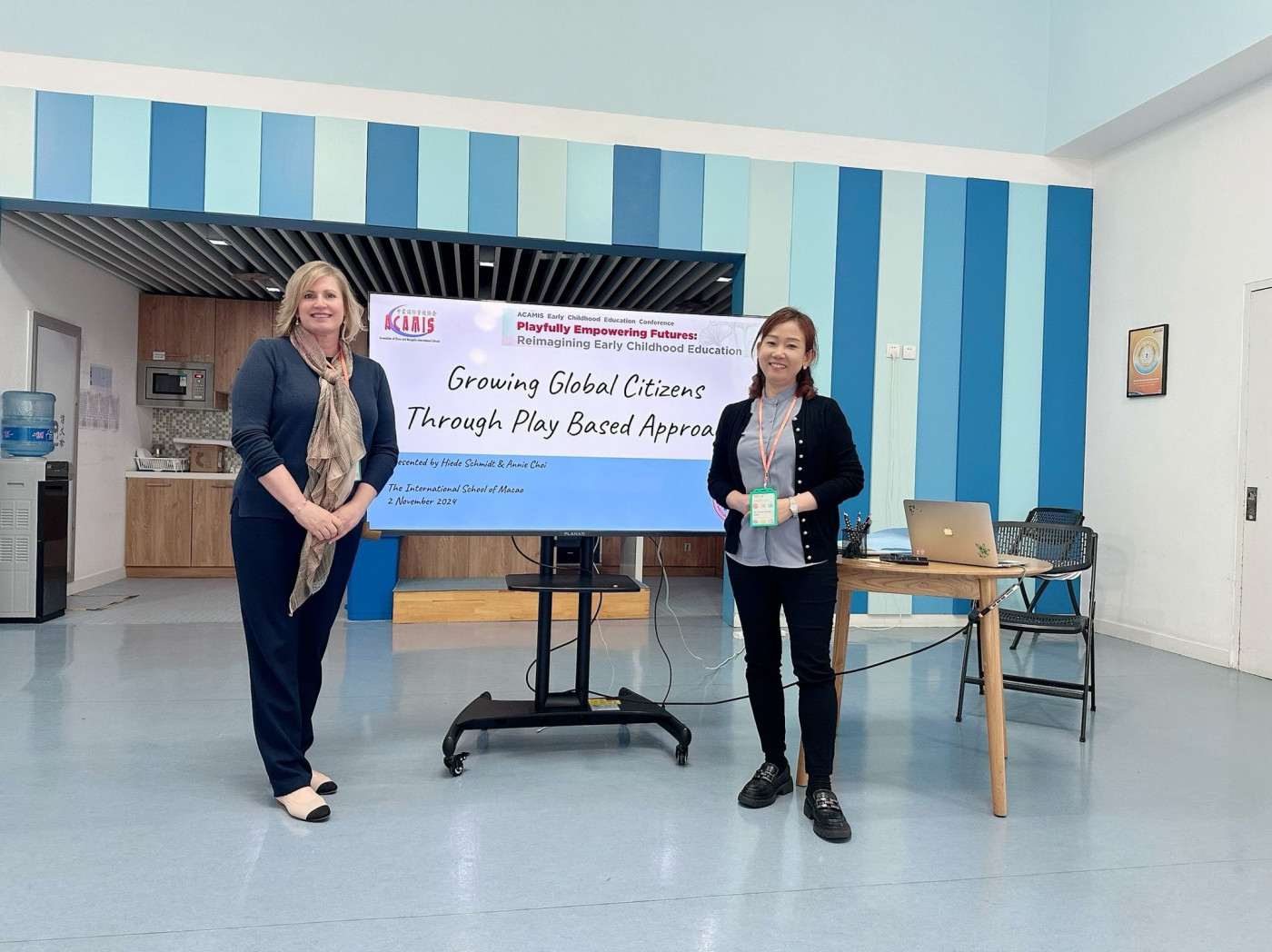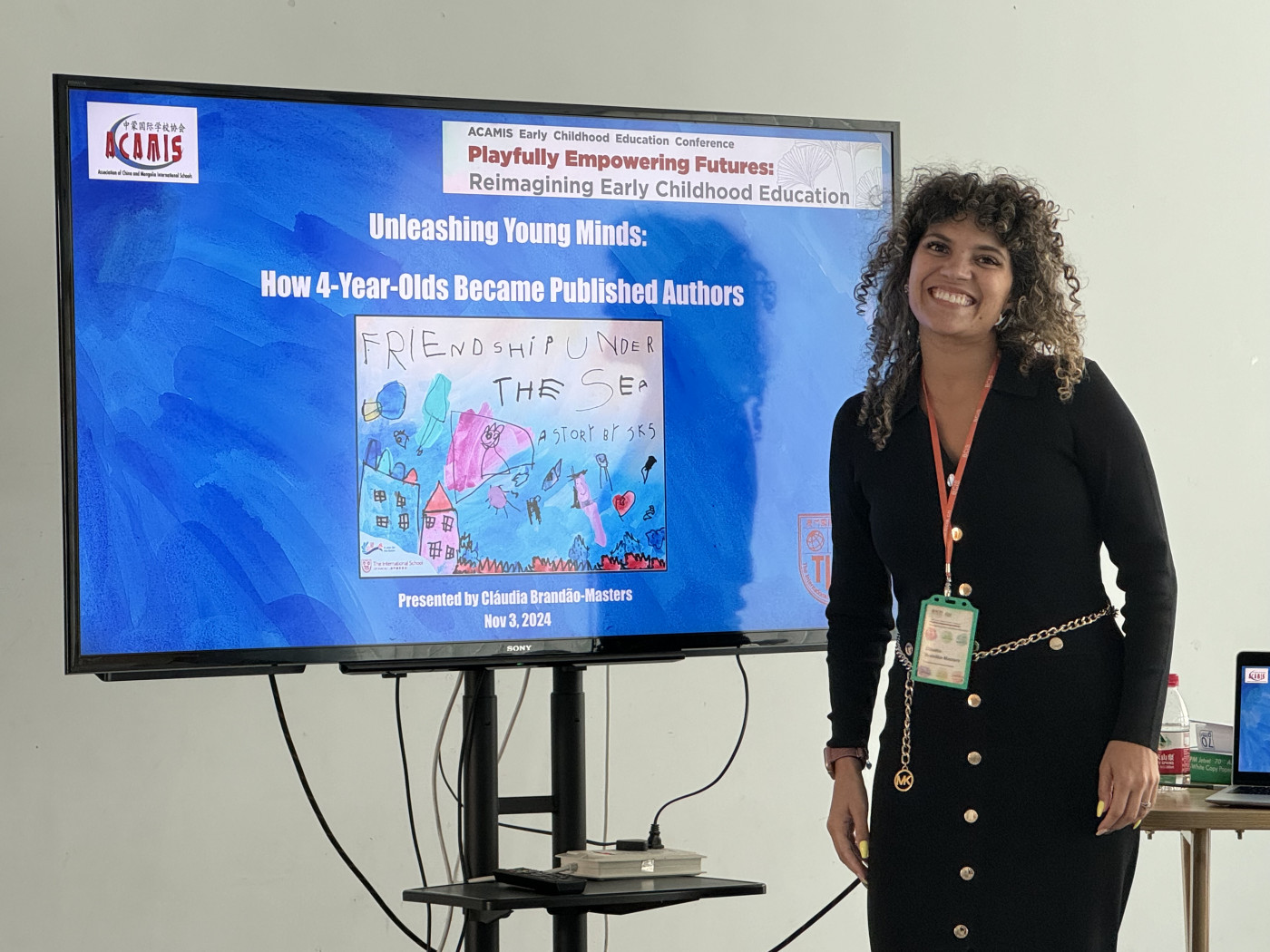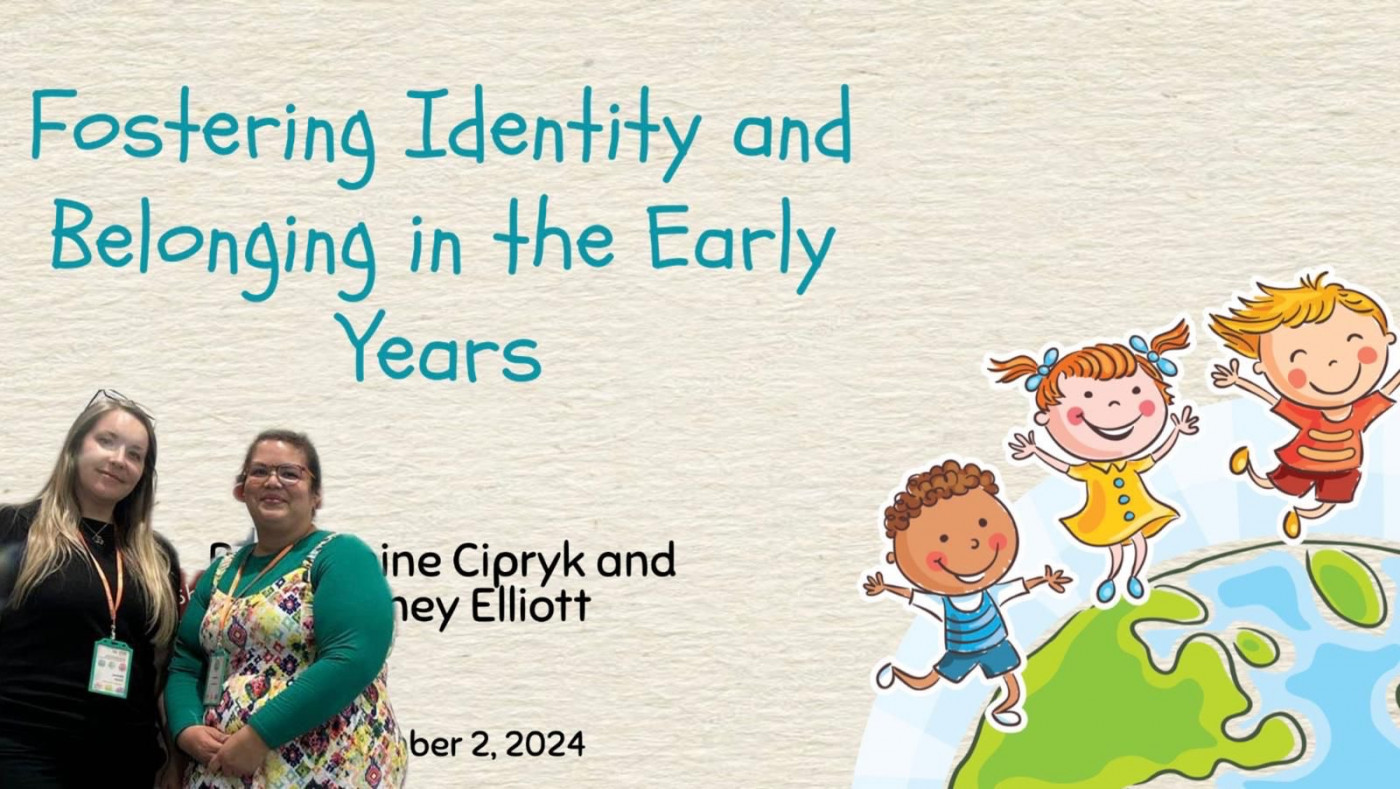
Empowering Futures
Recently, our dedicated early years educators attended the “Playfully Empowering Futures and Reimagining Early Childhood Education” conference. With a focus on STEAM, translanguaging, the power of play-based pedagogy, and post-pandemic well-being, this event was a valuable opportunity for professional growth and collaboration. Our ECE Coordinator, Hiede Schmidt, along with educators Annie Choi, Whitney Elliot, and Cláudia Brandão-Masters, not only participated in insightful sessions but also showcased their expertise as presenters. While Hiede and Annie are seasoned ACAMIS conference attendees, Whitney and Claudia made a remarkable debut, representing our school with confidence and creativity.
As we anticipate our upcoming TIS Early Childhood Education (ECE) conference in February, we’re excited to share key takeaways from their presentations that exemplify our commitment to fostering empowered and engaged learners.
Do You Believe a Child Can Make a Difference?
At our school, we wholeheartedly believe that even the youngest learners can have a profound impact on the world around them. During the recent conference, our educators showcased how we nurture global citizenship through a play-based approach in our Kindy program:
Empowering Global Citizens: Children engage in projects that inspire them to understand and act on global issues.
Case Studies: Real examples from classrooms illustrate how children have taken action, such as fundraising for environmental conservation.
Collaborative Learning: Whitney's presentation with an international school colleague emphasized the importance of connectivity and shared learning experiences.
Listening to Children's Voices: We prioritize discussions and reflections that allow children to express their ideas and concerns about the world.
School-Wide Initiatives: Students participate in projects that connect their learning to global challenges, promoting awareness and empathy.
Making a Difference: Our Kindy students learn and exemplify that even at a young age, they can make a positive impact in their communities.
Growing Global Citizens through a Play-Based Approach

Hiede (Mrs. S) and Annie (Ms. A) explored how young children can grow into active global citizens. They shared inspiring case studies from our classrooms that illustrate how children are empowered to take action on global issues. This includes our learning environments, designed for exploration, where children's voices are heard through discussions and reflective projects.
Our students have engaged in initiatives that connect their studies with real-world challenges. For instance, they’ve participated in the TISCA (TIS Community Action, formerly AIR) program, which supports environmental conservation, from Africa to Southeast Asia, and more.
Unleashing Young Minds: How 4-Year-Olds Become Published Authors
Do you believe a child can make a difference? In our School, the answer is yes! Mrs. Masters led an inspiring initiative that not only nurtured creativity but also illustrated the lasting impact of play-based learning on children’s attitudes toward reading and writing: her JK students authored a book titled Friendship Under the Sea (read more), which not only sparked their creativity but also taught them about marine conservation.

Through this project, the children learned the importance of protecting our oceans while expressing their ideas and imagination. Claudia later revisited these young authors to share the published book, highlighting the lasting impact their work had on their understanding of conservation. This initiative empowered them, instilled pride, and demonstrated that even at a young age, their voices can contribute to meaningful change, showing that exploration and imagination are vital for cognitive and emotional growth.
Fostering Identity and Belonging in the Early Years

Validating and celebrating diverse student identities is crucial for developing a strong sense of self in young learners. Ms. Elliot’s insights are invaluable, bringing first hand experience in nurturing children's development, through play-based education. This approach is essential for several reasons:
Multicultural Integration: Incorporating diverse stories and activities that reflect students' backgrounds, validates each child's identity and fosters a sense of belonging and appreciation for diversity in the classroom.
Cultivating Belonging: Creating an inclusive environment through community-building activities, such as cooperative games and collaborative art projects, help strengthen peer relationships and ensure every child feels valued and connected.
Play as a Tool for Expression: Using play as a medium for exploration and self-expression, role-playing scenarios that encourage children to articulate their feelings and perspectives, enhancing their social-emotional development.
Holistic Development: Practical strategies include sensory play and outdoor activities, which promote cognitive, emotional, and physical growth, nurturing children as whole individuals.



As we look forward to our own ECE conference on February 21 and 22, we are proud of our educators’ contributions and the inspiring work being done in our Kindy program. Their experiences at the recent conference not only enriched their own practices but also set a strong foundation for what we hope to achieve in our upcoming event. Together, we are committed to empowering the next generation of learners, ensuring they are equipped to thrive in an ever-changing world.



